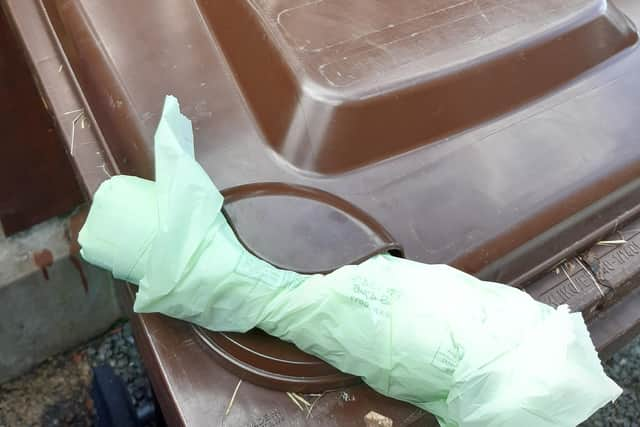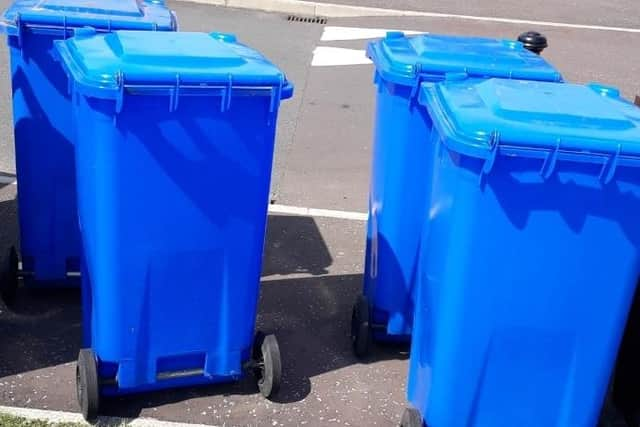Mid and East Antrim: costs could be halved if householders put food in the correct bin
and live on Freeview channel 276
During a report on the quarterly Northern Ireland Local Authority Municipal Waste Management statistics, the council’s Environment and Economy Committee was informed waste costs could be halved if householders put food waste in the correct bin.
Councillors were told at a meeting of the committee on Monday 17 per cent of waste dumped in black bins is food and 57 per cent overall is recyclable.
Advertisement
Hide AdAdvertisement
Hide AdThe report said the council collected 20, 227 tonnes of municipal waste, between July and September, a rise of 1.4 per cent on the same period last year, the majority of which was household waste.


From July to September, Mid and East Antrim’s landfill rate was 35.3 per cent, 2.4 per cent higher than the same quarter in 2022. It was more than twice higher than the average Northern Ireland rate of 16.8 per cent for waste collected by councils.
Meanwhile, the recycling rate of 53.2 per cent, the same as the Northern Ireland average, has decreased by 1.5 per cent. Mid and East Antrim was sixth of 11 councils for household waste recycling.
Braid DUP Alderman William McCaughey asked “what other councils are doing that Mid and East Antrim isn’t”. An officer told the committee blue bin waste is separated “somewhere else”.
Advertisement
Hide AdAdvertisement
Hide AdPointed Out


Larne Lough Ulster Unionist Councillor Roy Beggs noted the use of blue bins by other councils for recycling and achieving “higher recycling rates”. The officer pointed out Antrim and Newtownabbey Council uses triple stack bins and has the highest recycling rates in Northern Ireland.
Currently, triple stack bins are used by householders in Newtownabbey but households in Antrim use blue bins for recycling. Both areas use black bins for non-recyclables and separate food waste bins.
Mid and East Antrim Borough Council has applied to DAERA (Department of Agriculture, Environment and Rural Affairs) for funding for triple stack bins. Councillors were told there is no income from material deposited in blue bins.
Cllr Beggs asked why Mid and East Antrim’s reduced recycling rate has occurred. The officer explained: “We have never caught up since Covid. Figures have never reached figures pre-Covid.”
Advertisement
Hide AdAdvertisement
Hide AdCllr Beggs replied that recycling has increased in other parts of Northern Ireland. “They have had Covid. Clearly we need to learn from others. We should be looking at them because there is considerable cost in landfill.”
Committee chair Knockagh Ulster Unionist Ald Andrew Wilson commented: “We are still ahead of the Northern Ireland average.”
In October, councillors agreed deliveries of food caddy liners to Mid and East Antrim households would be reduced from three to twice annually as the borough council moves to cut costs.
It is anticipated the reduction will result in a 30 per cent saving and will allow for the use of just one bag weekly. It will mean a saving for the local authority of almost £50k. Currently, this provision has a budget of £172,500.
Advertisement
Hide AdAdvertisement
Hide AdBannside TUV Cllr Timothy Gaston said: “We need to encourage those who do not put bins out in winter to put them out.”
The officer said every Christmas, there is a campaign regarding food waste. The officer was asked to raise food waste profile again.
Michelle Weir, Local Democracy Reporter
